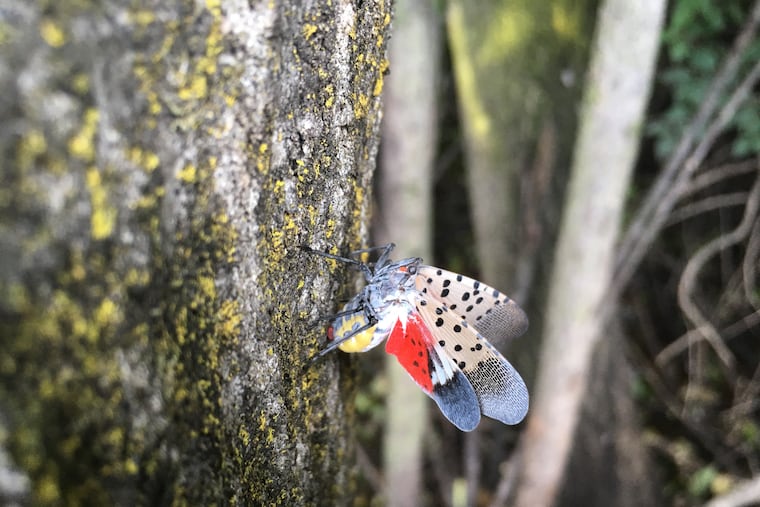Philly cops: Please don’t call 911 to report spotted lantern fly invasions
The insect began invading Philadelphia a year ago, but it was first discovered in the United States in Berks County in 2014.

Philadelphia police sent out a unique tweet to their 204,000 followers: Stop calling us about your spotted lantern fly sightings.
Yes, the destructive pest not only swarms trees and chows down on crops, but now it’s upped its nuisance game: getting people to call 911.
“Please do NOT call 911,” police asked those apparently freaked out by the invasive pest — and then added a dash of humor.
“While they are a nuisance, they are not a police issue,” the tweet said. “And on that note, we, for one, would like to welcome our new insect overlords. Maybe they would like to build some nests on our vast concrete headquarters?”
Funny.
But, alas, the spotted lantern fly is no joke. The insect began invading Philadelphia a year ago, but it was first found in the United States in Berks County in 2014. It’s a major pest for agriculture as it can damage fruit trees, ornamental trees, woody trees, vegetables, herbs, and vines — though it does not bite or sting humans.
Since, then it has spread rapidly to 14 Pennsylvania counties, which are now under quarantine. It also is present in eight counties in New Jersey.
Its invasion is so bad that Pennsylvania requires businesses that transport anything in and out of the quarantined counties to get free online training on the pest, and a resulting permit. The bugs spread primarily by hitching rides on vehicles.
The movement happens when females glue their inconspicuous egg masses to vehicles, outdoor furniture, or other objects.
They can swarm whole trees. The tree of heaven is a preferred haunt.
The spotted lantern fly feeds on plants by piercing them to get at sap. In the process, they excrete liquids that cause wounds on the plants and facilitate mold growth.
But there might be some good news: Scientists at Pennsylvania State and Cornell Universities are studying a treatment they hope will control the spread of the worst insect to infiltrate the United States since the gypsy moth started defoliating millions of acres of forests and killing countless trees in a process that started more than a century ago.
In fact, if you are temped to call for help, try the Penn State hotline for the spotted lanternfly or to report sightings at 1-888-422-3359 for questions or report a spotted lanternfly sighting online.
New Jersey also has a hotline at 1-833-223-2840 (BADBUG0).